Our politeness has a bottom line: UK tells EU amid Brexit impasse
British Foreign Minister Jeremy Hunt has warned that London may run out of patience in the face of European Union’s continued refusal to accept its proposals for a withdrawal from the bloc.
Hunt told the BBC on Saturday that Britain would not capitulate in Brexit talks, urging EU partners to engage seriously with its proposals for how the country will leave the bloc in March next year.
“We may be polite, but we have a bottom line. And so they need to engage with us now in seriousness,” Hunt said, adding, “If the EU’s view is that just by saying no to every proposal made by the United Kingdom, we will eventually capitulate ... then they’ve profoundly misjudged the British people.”
British Prime Minister Theresa May also bashed the EU for its continued stubbornness in talks on Brexit, saying negotiations with Brussels had nit an impasse.
The change in Britain’s tone toward the EU come after European leaders reiterated their position on some of the key demands of Britain for withdrawal. EU leaders said after a summit in Austria on Thursday that they could not compromise on the situation of the border between UK province of Northern Ireland and EU state of Ireland. They also demanded Britain to rework its positions on trade.
May told a meeting of EU leaders in Salzburg on Wednesday that no British government would allow a “legal separation” of Northern Ireland from Britain. May’s defiant statements have been welcomed by many in Britain who had previously been critical of her Brexit strategy.
The EU and Britain had hoped they could reach a deal on Brexit in the middle of October or in early November. Both sides fear a failure could lead to a situation where Britain leaves the EU without a deal, leaving many issues in bilateral relations unregulated.
Hunt said in his Saturday interview that Britain would be able to withstand a no-deal Brexit.
“Even in a situation where we aren’t able to come to an agreement, we would be trading on World Trade Organization terms. It would be bumpy, it would be difficult, but we would find a way to survive and prosper as a country,” he said, adding, “We’ve had far bigger challenges in our history. But it’s not our desired outcome.”
VIDEO | Press TV's news headlines
VIDEO | US-Israeli genocide: Will Gazans see ceasefire deal achieved?
VIDEO | Grief strikes Parachinar: 44 lives lost in terror attack
VIDEO | Yemen’s armed forces target Israeli airbase amid nationwide pro-Palestinian rallies
Putin vows more test of new hypersonic missile
VIDEO | Jordanians continue rallies to denounce Israeli genocide in Gaza, Lebanon
6 Israeli soldiers commit suicide: Reports
Diplomat discourages recourse to pressure, intimidation, confrontation against Iran


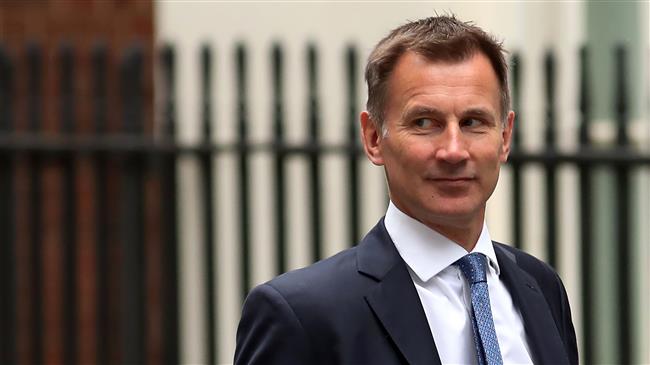







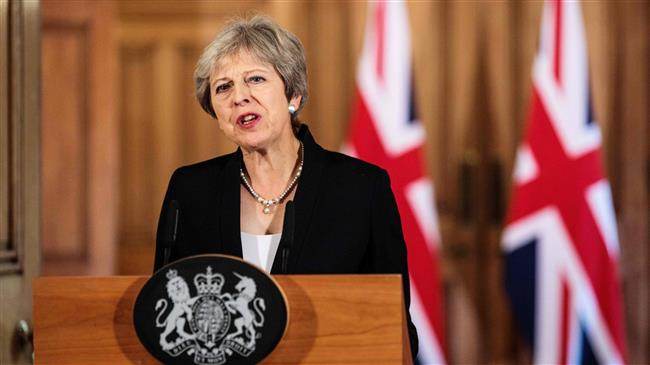
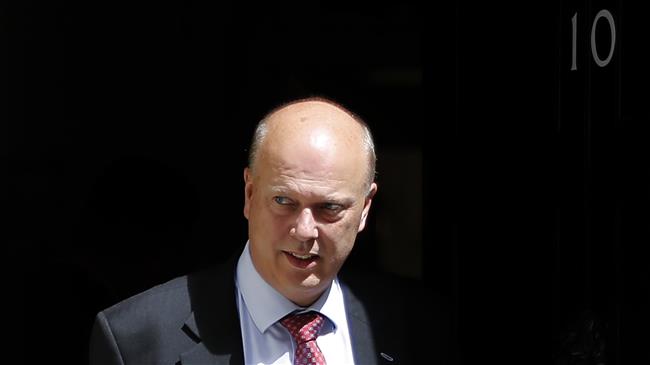
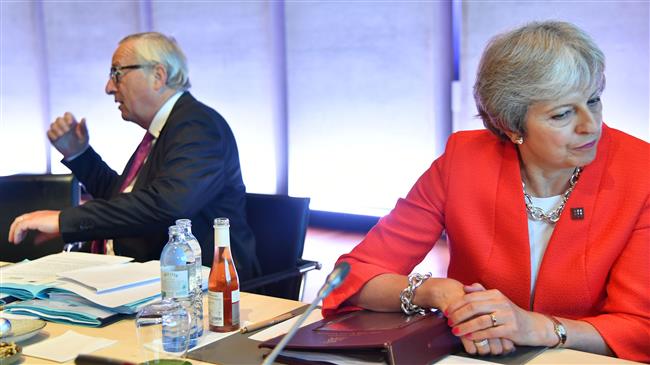
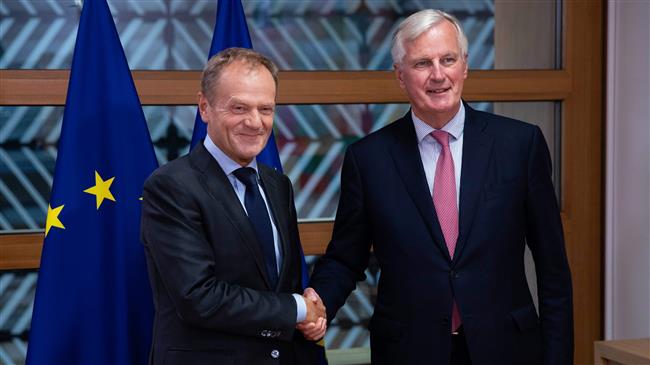

 This makes it easy to access the Press TV website
This makes it easy to access the Press TV website